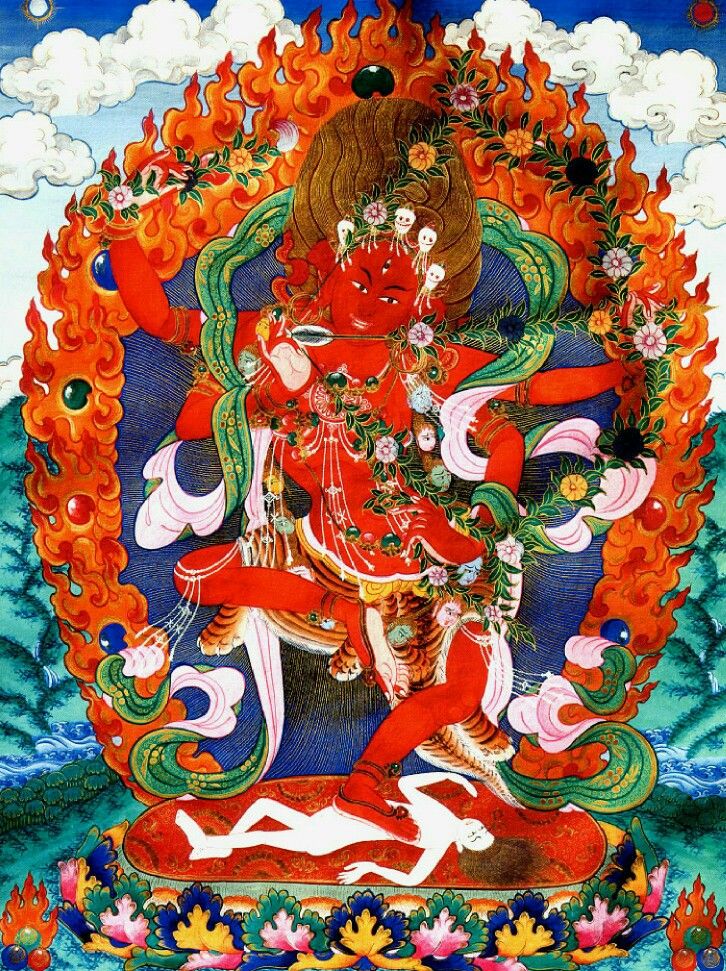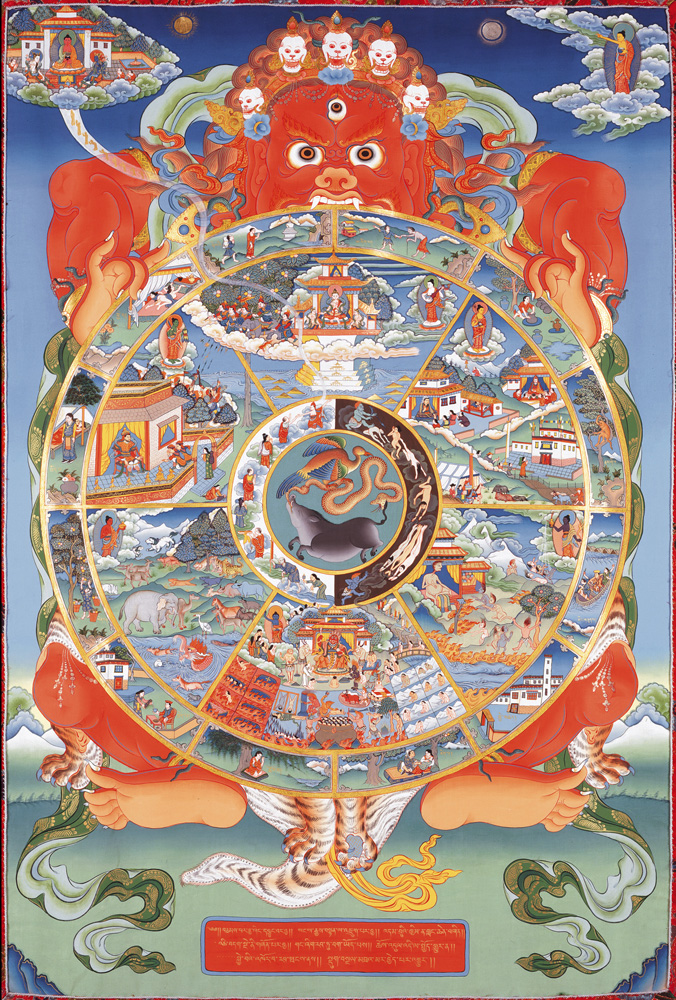
Your complimentary articles
You’ve read one of your four complimentary articles for this month.
You can read four articles free per month. To have complete access to the thousands of philosophy articles on this site, please
Books
The Monk and the Philosopher by Jean-François Revel & Matthieu Ricard
Lachlan Dale explores some of the philosophical implications of Tibetan Buddhism.
The Monk and the Philosopher is an exploration of Tibetan Buddhist belief and practise, and an attempt to understand the religion’s growing popularity in the West. The book is in the form of a series of conversations between Jean-François Revel, a French intellectual known for his defense of liberalism and wariness of the totalitarian tendencies of religion, and his son Matthieu Ricard, who in the early 1970s abandoned a promising career in molecular genetics to study Tibetan Buddhism in Darjeeling. For Revel, his son’s decision to choose Eastern wisdom over the fruits of Western liberalism must have come as a shock. So on top of his desire to understand the appeal of Tibetan Buddhism in the West, Revel also wanted to better understand his son. Moreover, the disagreements between father and son roughly mirror the split between Eastern and Western forms of knowledge, making this book an excellent critique of Tibetan Buddhism for the philosophically-minded Westerner.
In recent decades Buddhism has enjoyed considerable growth in Western countries, in part due to a growing body of research confirming the effectiveness of mindfulness and meditation. These techniques have been demonstrated to reduce stress and anxiety, improve memory, and enhance cognitive flexibility. Psychologists also report an increased capacity for empathy and compassion, while neuroscientists note the increased density of grey matter in the hippocampus of long-term meditators. As a result, these techniques are often transplanted into a secular context. This troubles purists like Ricard, who believe the practises must remain rooted in a Buddhist program of spiritual development. When combined with visualisation, repetition of mantras, and the study of sacred texts, these techniques are said to allow an individual to directly grasp the fundamental nature of reality, including the unity of all phenomena, the transitory nature of existence, and the illusion of the self.
The ultimate goal of Tibetan Buddhism is not merely to reduce anxiety, but to reach nirvana. Ricard denies that this is an alternate metaphysical realm, instead understanding it as a state ‘beyond suffering’ in which one can directly contemplate absolute truth and “experience an unchangeable state of bliss and perceive the infinite purity of all phenomena” (p.150). He argues that Buddhists do not seek to flee this world, but merely to no longer be enslaved by it: “Dissolving the mind’s attachment to the reality of a self does go hand in hand with annihilation, but what’s annihilated is pride, vanity, obsession, touchiness, and acrimony. As that attachment dissolves, the field is left clear for goodness, humility, and altruism. By no longer cherishing and protecting the self, you acquire a much wider and deeper view of the world” (p.156). On the surface this seems a perfectly noble, secular, aspiration. However some aspects of Tibetan Buddhist doctrine prove more problematic to Western thinking.

Tibetan Buddhist spirit
Karma versus Free Will
Take the issue of free will. While Ricard is happy to acknowledge that humans exist within an immense web of interdependence, and are subject to causation, he denies that physical laws drive the causative process, believing instead that karma – a universal moral governing-force deeply linked with a belief in reincarnation – is the ultimate driver. In other words, in this moral causal process, the universe ensures that your past deeds are paid back good for good and evil for evil, if not in this life, then in a future incarnation. The form of an individual’s rebirth depends on the karma they’ve accumulated over past lives. Depending on your balance of good deeds versus evil deeds, you may return as a human, animal, or insect. (Traditional Tibetan Buddhist cosmology also holds that you can be reborn as a god or demon in another realm, although Ricard doesn’t mention this.) Moreover, Tibetan Buddhists believe that when an individual dies, the person’s consciousness lives on in a non-material plane called bardo to await rebirth. But although a non-material basis for consciousness is merely against current scientific orthodoxy, the concept of karma also carries troubling moral implications. By Ricard’s orthodox Buddhist interpretation, everything that happens to an individual is the result of past action. When his father gives the example of a small child whose short existence is racked with disease and misery, Ricard explains that “Whatever happens to us, [Buddhism] teaches, is never just by chance. We’ve created the causes of our present suffering ourselves” (p.127). This denies the possibility of an innocent victim, and is as unsettling as a Christian’s rationalisation of an innocent suffering as ‘part of God’s plan’.
The doctrine of karma also holds implications for euthanasia. When asked what Buddhism recommends for someone in great pain at the end of their life, Ricard replies that the pain provides an opportunity for spiritual growth: “since suffering is the result of our past negative actions, it’s better to pay off our debts while we have available the help of spiritual practice… neither euthanasia nor suicide are acceptable.” (p.269)
Although we might be tempted to draw parallels here to Viktor Frankl’s view that suffering provides opportunity for the creation of personal meaning, Ricard’s perspective has a troubling corollary: if all suffering is self-caused, and to avoid pain is to merely postpone it, then an embrace of suffering is spiritually mandated. Such romanticisation of suffering leads Revel to protest on ethical grounds. It creates worries for me, too. How should we regard compassionate acts that reduce someone’s suffering? Are they tampering with the law of karma or otherwise inhibiting the spiritual growth of the individual? Unfortunately, these questions are not addressed.
Deeper contradictions, such as how humans can possess free will in the face of karmic determinism, are also left unexplored by Revel. Focus instead shifts onto the Tibetan Buddhist conception of consciousness.
The Problem of Consciousness
Ricard persists in defending what he terms the ‘law of the conservation of consciousness’ – which is a quasi-scientific framing of the claim that consciousness can never be lost or destroyed, and therefore lives on after death.
Revel unpacks this idea for the benefit of the readers. He explains that there are two primary philosophical positions when it comes to the nature of reality. The first is monism, which claims there is a single fundamental reality or substance in the universe. While historically some monist philosophers have argued that reality is ultimately composed of god or spirit, modern monists are more often physicalists, who claim that everything in the universe is matter/energy. This position holds that consciousness can be explained in terms of the functioning of the brain. The physicalists claim that although we don’t yet understand the precise mechanics of consciousness, we can use Occam’s Razor to reject any hypothesis that adds to the physical laws of the universe. The second position is dualism, which argues for another principle in addition to matter, thus positing a division between mind and matter, or body and soul. By claiming that consciousness persists after death in a non-material form, Ricard seems to be arguing for dualism, thus breaking away from the majority of the scientific community.
When pressed for evidence for the survival of consciousness after bodily death, Ricard recounts the testimony of Buddhist teachers who claim to be able to recall past lives, and experiences of the afterlife. Since he has known these teachers for decades and has never known them to hurt or deceive anyone, he feels it reasonable to accept their accounts on face value.
Unsurprisingly, Revel rejects this line of defense. In the scientific world, testimony of this kind can never stand in for empirical evidence. As he says, “Someone can very well be perfectly sincere and have never tried to deceive anyone, and still be subject to illusions…” (p.49). Although Ricard protests against this, he cannot escape Revel’s assertion that “Tibetan Buddhism attempts to build a science of the mind on a completely unproven theory” (p.114).

Towards a Secular Buddhism
In the final section of the book Revel theorizes about why Buddhism is becoming increasingly popular in Western countries. He suggests that in the 20th century many people in the West abandoned philosophy as a source of individual wisdom because it became a highly technical and specialised endeavour divorced from the concerns of the wider population. This created a moral vacuum which has been filled by various utopian political projects, including the totalitarian systems of communism and fascism, resulting in atrocities on an unimaginable scale. In this context, Revel views Buddhism’s rise as an indication that people are becoming interested in developing their inner life and personal system of ethics rather than finding meaning through collective ideologies.
Notably, Revel’s analysis disregards the influence of the dominant ideology of the West, consumer capitalism, which seems to promise inner development and personal fulfillment through the accumulation of possessions. For Revel to ignore the effect of the most influential political ideology in the world while blaming declining morality on Marxists and Hegelians seems absurd to me. It is perhaps indicative of his personal political bias. When contrasted with the work of a contemporary philosopher such as Peter Sloterdijk, Revel’s comments seem simplistic. Sloterdijk’s argument is that a complex process of ‘de-spiritualisation of ascetic practises’ is underway, in which aspirations for self-improvement and self-transformation have been transferred from spiritual to secular channels, such as sport, art, and entrepreneurialism.
In his closing remarks, Revel expresses an appreciation for Tibetan Buddhism as a system of philosophy, but notes that its metaphysical beliefs will limit its appeal to a non-religious, materialistic Western audience. And although Ricard is eager to claim that Tibetan Buddhism constantly purges itself of superfluous teachings, this book demonstrates that its task of separating myth from practice is far from complete. It was the unsubstantiated and unquestionable belief in reincarnation that caused the writer Stephen Batchelor to walk away from Tibetan Buddhism and begin his search for ‘Buddhism Without Beliefs’. His work on the demythologization of the historical Buddha and the establishment of a framework for secular Buddhism is recommended for further reading.
Taken as a whole, The Monk and the Philosopher is a captivating read. Both speakers are sharp-minded and highly knowledgeable about their fields, and the friction of their intellectual sparring yields many insights to enjoy. For those after an engaging introduction to Tibetan Buddhism coupled with a healthy dose of secular skepticism, look no further.
© Lachlan R. Dale 2017
Lachlan Dale is a writer and musician. He is currently undertaking a Masters of Creative Writing at the University of Technology, Sydney.
• The Monk and the Philosopher: A Father and Son Discuss the Meaning of Life, by Jean-François Revel and Matthieu Ricard, Schoken Books Inc., 2005, 384 pages, £12.94 pb, ISBN: 978-0805211030









